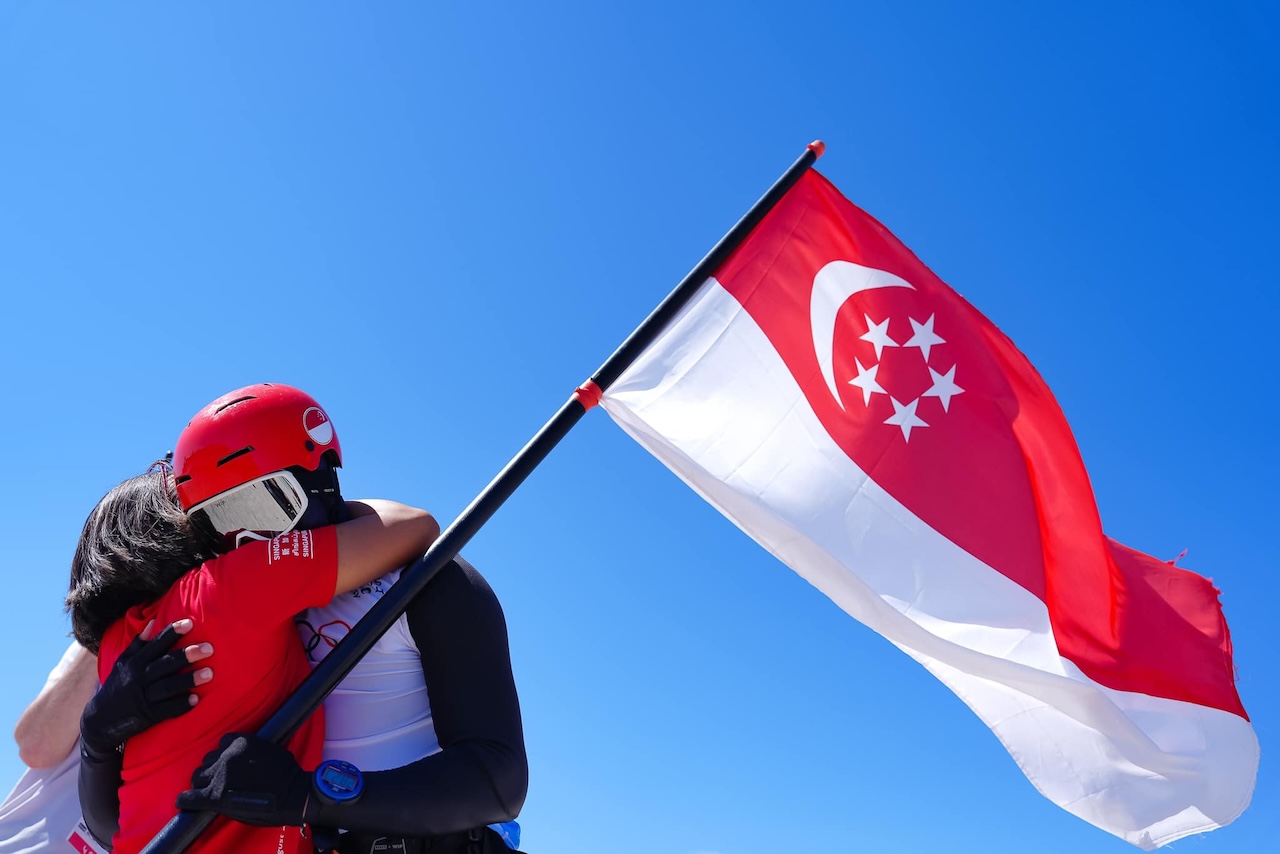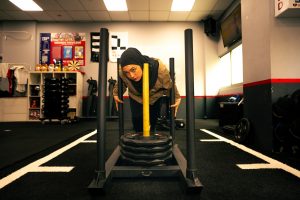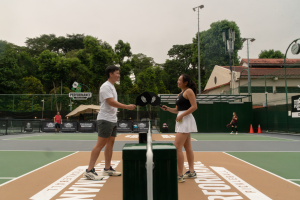Top image: Kong Chong Yew for Singapore National Olympic Council / Facebook
“I know my son, he doesn’t feel good about himself… he felt like he’s let a lot of people down,” said Hwee Keng Maeder, the mother of Maximilian Maeder, Singapore’s newly-minted Olympic bronze medallist.
Although I don’t know Max personally, as a fellow Gen Z, my heart ached when I read his mother’s words. Watching the live telecast, I noticed it took Max some time to return to shore after the finals. While online commenters flooded him with congratulatory messages, it was clear he was grappling with emotions not easily shaken off.
Max likely felt a mix of relief and disappointment—relief for delivering an Olympic medal for Singapore but disappointment for not meeting the sky-high expectations of winning gold. Despite composing himself afterwards, Max admitted that he’s still processing the overwhelming emotions from his Olympic journey.
This brings us to a broader issue: in our society, where academic and economic success often take precedence, we also seem fixated on gold and glory above all else. Celebrating Max’s achievement is undoubtedly important, but should we not also acknowledge the emotional toll and struggles behind it?
At just 17, Max is still navigating his place in society, even as he excels in kitefoiling. He represents a new generation of Singaporeans pursuing unconventional passions—be it in sports, music, or the arts—who need more than just fleeting recognition.
They need sustained support.
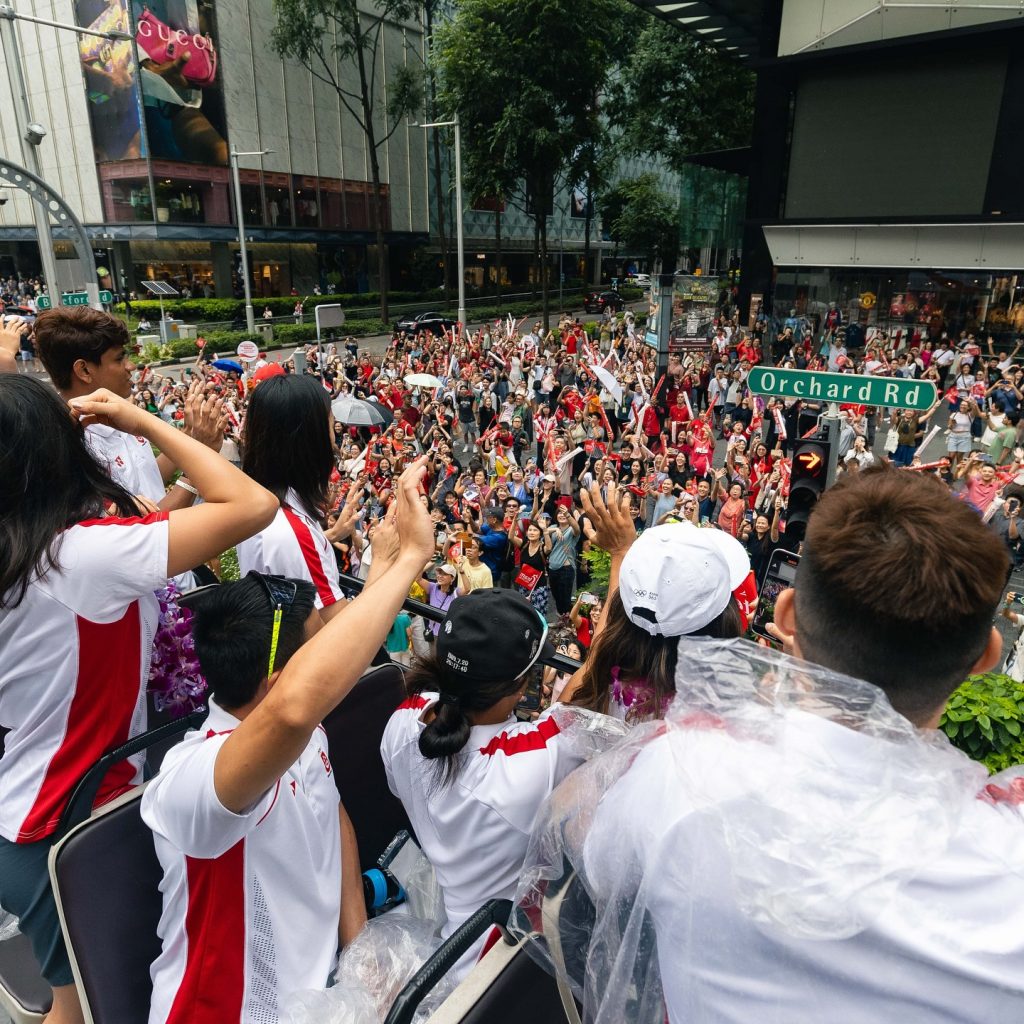
Patterns of Affinity
To understand how to support youths like Max, we must first grasp their motivations and the ecosystems that fuel their passions.
Max’s journey began early, with an inherent love for sports and competition. His mother recalls how, at just four years old, Max locked himself in his room after losing a snowboarding competition, only to wake up early the next day to train harder. Encouraged by his parents, Max explored various sports before finding his true passion in kitefoiling at the age of six.
By 11, he declared his goal of becoming a world champion—a dream he realised in 2021 with a youth world champion title.
Throughout his journey, Max received support from various authorities, including the Singapore Sailing Federation, the Kitesurfing Association, and the Singapore National Olympic Committee. However, despite his successes on the world stage, Max remained relatively unknown in Singapore until his Olympic debut.
The Olympics, receiving unparalleled attention from everyday Singaporeans, suddenly thrust Max into the national spotlight. With National Day coinciding with his finals, support for Max surged—his Instagram followers soared, and watch parties were organised.
Yet, alongside this overwhelming support came immense pressure. It’s understandable why he might have felt he fell short of expectations.
Fortunately, most Singaporeans were still supportive of Max’s third-place win. After all, he’s only the sixth Singaporean to have ever ascended the Olympic podium. Not to mention, he’s also the youngest to have ever done so.
However, this raises the question: will this support endure, or will it fade as quickly as it arrived?
The New Normal
Max’s experience could stand to echo that of Joseph Schooling, who enjoyed widespread support following his historic Olympic gold but faced harsh criticism when he couldn’t replicate that success. Let’s not forget what happened to Quah Ting Wen as well.
This phenomenon highlights a troubling pattern—our support often hinges on immediate success rather than the journey itself. Personally, I feel that Singaporeans can definitely do better, especially with the talk on broadening the definition of success now.
Making that cultural pivot is tougher with tired tropes about Singapore’s youths being “a bunch of strawberries”. How they’re apparently easily bruised, entitled, pampered, and would give up easily. That they need tough love and some hard truths to push them out of comfort zones.
But Max just proved them wrong.
Despite setbacks and challenges—including unpredictable wind conditions at the Marseille Marina—Max’s fighting spirit never wavered. His post-race interview with CNA captured this resilience: “I can continue learning, I can continue improving.”
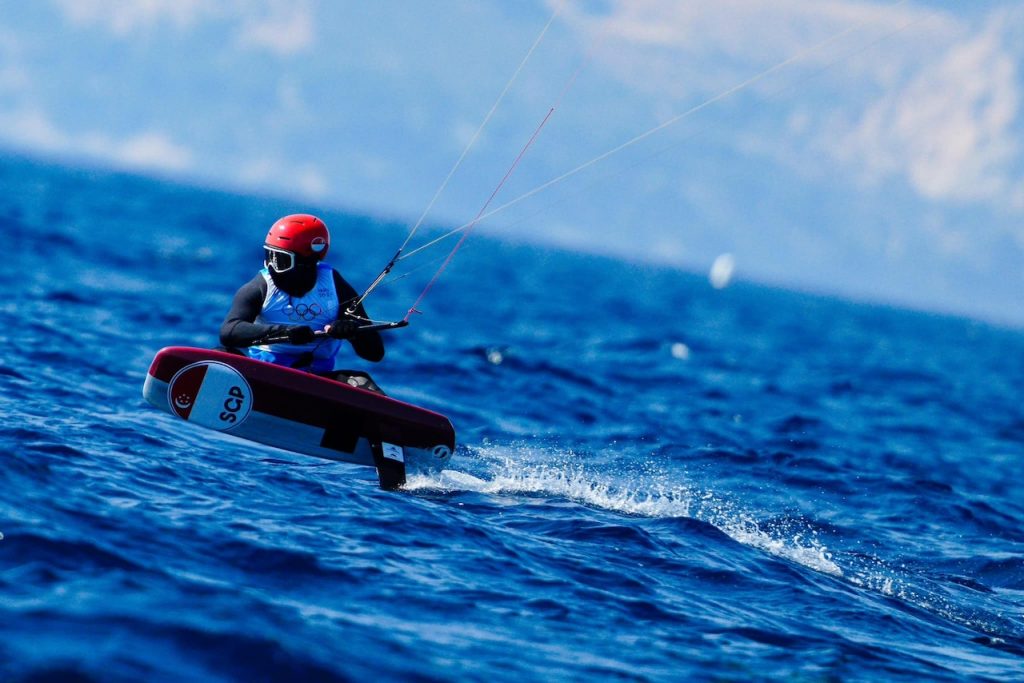
This determination is not unique to Max; it’s a trait shared by many Singaporean youths. Whether it’s young startup founders stepping out of their comfort zones or athletes like Max pushing their limits, our youths possess a resilience that’s often overlooked.
However, the ‘bubble mentality’ prevalent in Singapore—where safety and security are prioritised—can stifle this potential. Many youths, influenced by well-intentioned but risk-averse older generations, may choose the well-trodden path, even if it means sidelining their true passions.
Max’s performance shows that with support, Singapore’s youths can fully realize their potential, though success isn’t guaranteed for everyone. Take Yu Mengyu, who, despite not winning a medal at the Tokyo 2020 Olympics, earned the admiration of Singaporeans for her perseverance. Failure shouldn’t deter youths from pursuing their passions when it’s a natural part of the journey.
Max, however, was fortunate to discover his passion early and receive the necessary support. But what about those who lack the privilege, resources, and support to pursue their dreams?
Maxing Out Potentials
In a recent conversation for SEAmplified, I learned that youths from lower-income backgrounds often don’t have the luxury to explore their passions, as they must prioritise survival.
While there are financial resources and mental health support available, many youths hesitate to seek help, fearing they’ll burden others or have their concerns dismissed.
For instance, a study by the Children’s Society found that some youths are worried that they will be burdening others with their problems, and are afraid of having their thoughts dismissed if they were to seek help.
As a society, we can do better. We need to create an environment where seeking advice and help is normalised, where youths feel genuinely supported in their pursuits.
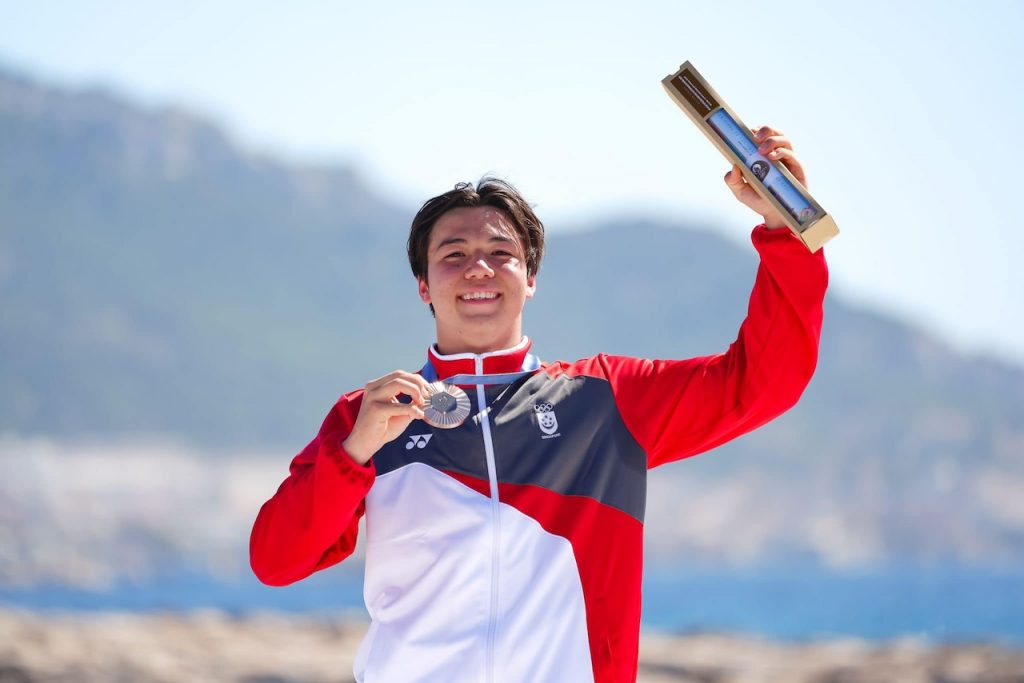
On a positive note, there are signs that we’re moving towards a more inclusive society. The overwhelming support for Singapore’s Olympians, including Max, Yeo Jia Min, and Shanti Pereira, indicates a growing recognition of the diverse talents and passions of our youths.
Even President Tharman noted this shift in his post on National Day, urging society to “let them find their own game in life and support the choices they make”.
Ultimately, pursuing unconventional passions is never easy, especially at an elite level like the Olympics. But Max’s achievement teaches us that the real victory lies not in the medal alone. It lies in the journey of passion, resilience, and growth that shapes our youths into who they become.
An award or medal is the icing on the cake—the true achievement is the person they’ve grown into through their journey.

